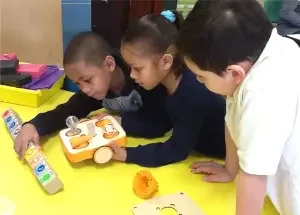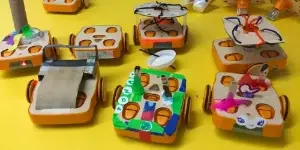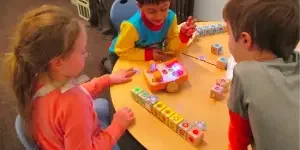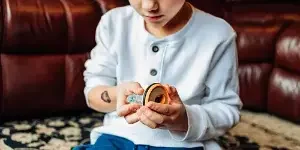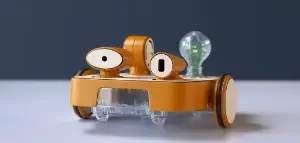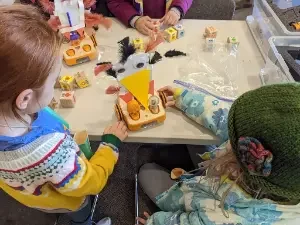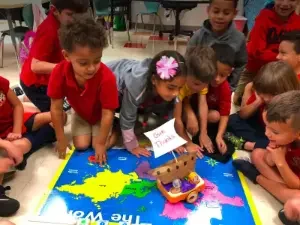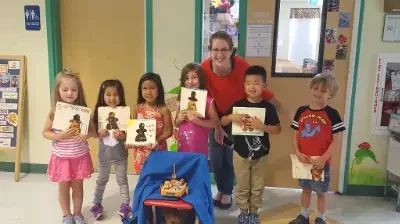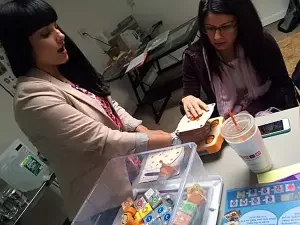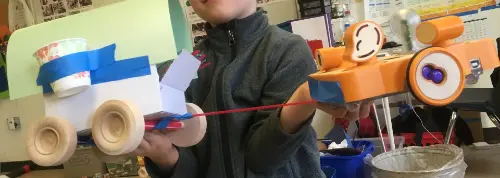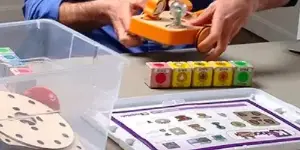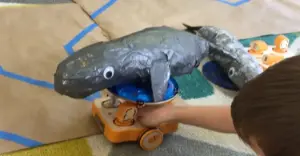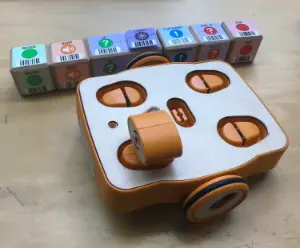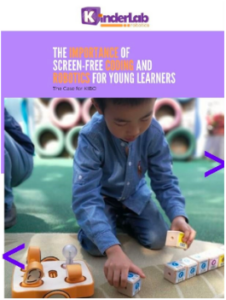Thrive Global: Start with a Strong, Clear Vision
As a part of the series about “Lessons From Inspirational Women in STEM and Tech,” KinderLab’s co-founder and Chief Scientist, Dr. Marina Umaschi Bers, was interviewed.
Some highlights from the interview:
Can you tell us what brought you to this specific career path?
While I was doing my undergrad degree in Social Communication at Buenos Aires University, I was working as a journalist in Argentina when I interviewed Seymour Papert for a story I was writing. I fell in love with his work, and then I started learning more about him and I said, “I don’t want to write about him, I want to study with him.
So I came to the U.S. to study at the MIT Media Lab with Seymour When I finished my PhD in 2001, I became an assistant professor at Tufts and have been there ever since. I started the DevTech research group, which focuses on developing on new technologies and approaches for young children. In 2014, with funding from the National Science Foundation, we developed and evaluated a prototype of what is now KIBO, a screen-free, programmable coding robot for ages 4–7. To make that prototype widely available, I joined forces with my friend Mitch Rosenberg, who had been an executive at several robotics start-ups, and we co-founded KinderLab Robotics.
How do you balance your work as a department chair at Tufts, a leader of KinderLab, and a mentor to other women who want to pursue STEM careers?
You have to be very organized in the work and have a wonderful team and colleagues. I think I was able to create that at both Tufts and KinderLab. You cannot do it alone. When I co-founded KinderLab with Mitch, the idea was to find a co-founder who would be not only excellent, but who would understand the pressures on my time because of my multiple commitments. That was very important from the beginning.
At Tufts, I play three different roles: I’m professor, director of my DevTech research group, and the chair of the department. And in all of those roles I have wonderful people who work with me. You need to learn how to delegate and how to be on top of what people are doing, but also give them flexibility so they can find their own passion and bring it to the work we do together.
Are you working on any exciting new projects now? How do you think that will help people?
Right before this whole crisis started, in March, a team of my students flew to Norfolk, Virginia, where we were doing a study with KIBO in eight schools. They flew to train 30 or 40 kindergarten teachers who were then going to take KIBO into their classrooms and do a three-month study. We had already completed the study in second grade and in first grade classrooms with very good results that showed that teachers were able to teach easily with KIBO, after a one day professional development only, and that children learned to code, created amazing KBIO robotic projects, engaged in computational thinking and improved their literacy skills as well. to think.
The training with kindergarten tecahers happened but right after, schools were closed in Norfolk, and they’re not going to start again until September (maybe). So the last phase of our project with KIBO completely stopped. KIBO is a tangible object, so it’s not something that we can do online.
But the good news is that I talked with Angela DeMik, our colleague in Norfolk, and she told me that teachers were so excited about the training that they asked if we can do next year. For us, it will involve a lot of shifting around because we have other projects in September, but we’ll accommodate them because we want to finish what we started, and we want to give those teachers something to look forward to as they enter into the new school year.
Another research project we’re working on is Robotics and Values conducted in kindergarten classrooms in both the US and Argentina. The questions we asked were, “Can a robotics-based program not only promote the acquisition of important technology skills but also help children become better citizens and human beings? Can robotics be used to support character development and values such as creativity, curiosity and generosity?”
We finished collecting all the data and put together a video that tells the story of the project and includes teachers and children.
Read the full interview.

